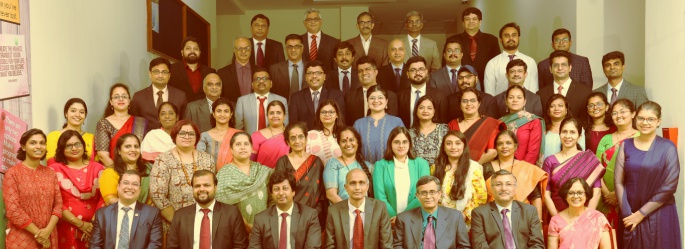“Union Budget 2022: From Bigger Allocation To Reduction In GST, Check Wishlist Of Education Sector Here”
As the government is set to present the Union Budget on February 1, expectations have started to build up across the sectors, including education. In the current state of the economy, the implementation of the National Educational Policy (NEP) is being seen as one of the main thrust of the current Budget.
In 2021, the centre reduced its allocation towards education by 6 per cent, effectively making it an allocation of Rs 93,223 crore, mainly affected by the attribution to healthcare last year. However, the industry is expecting the allocation to be raised by around 10 per cent.
“The impact of the pandemic on the education system, particularly the public education system, has made us increasingly reliant on supplementary sources of education, primarily provided by private organisations. In the recent past, these had been categorised under “educational services” and taxed at 18 per cent under the Goods and Services Tax (GST). This year, we expect that the government will reduce this to 5 per cent, and help to ease pressure on particularly those students who come from lower and middle-class families,” said Dr Chenraj Roychand, founder and chairman, JAIN Group, which runs Jain University.
Some educationists have demanded creating an enabling environment to enhance private sector participation. “Contributions made by a corporate or a foundation or any other grant-making entity to a university or to a research centre or a centre of excellence (being part of a university or higher education institution) or a new university approved by the government or an approved programme under a university-industry partnership, should be eligible for deduction from taxable income to the extent of 300 per cent of such contribution,” said Professor YSR Murthy, founding vice-chancellor of R V University, Bengaluru.
On the other hand, institutes are looking at deduction in tuition fees as well. Rajiv V Shah, professor at T A Pai Management Institute, Manipal, said, “There is a need to allow a full deduction of tuition fees of up to two children under a separate section that does not fall under the limit of Rs 1.5 lakh and thus support fee paying parents and the education sector. Further, the scope of payment could be broadened to include part time education and distance education as well, considering current realities. In a world where constant upgradation is the key for employees, fees paid for education of self or spouse should also be considered for deduction.”
“The NEP 2020 is a nonstarter without a strong road map of 10 years for implementation and enough budgetary allocation. We need a very strong budget for this and we cannot ignore or just say that we don’t have budget. We will have to cut down other expenses but provide enough money for the education budget because that is where the future lies in India. Secondly, in this 10-year road map, I think more collaboration is required between Indian and foreign universities and technical institutions,” said Nitin Potdar, partner, J Sagar Associates (JSA).
Puneet K, president, The Narayana Group, which has chain of schools, coaching centres, engineering college, and medical college, said, “As the country gears up for the implementation of the NEP, the Union Budget needs to consider significant investments in a number of key areas to ensure that the NEP succeeds. Allocations need to be made to provide access to devices to students and teachers that will enable them to learn 21st-century skills. The Budget must allocate funds towards basic teacher training institutes at a block level to increase access to quality teachers.”
Meanwhile, edutech firms are also looking at the government support in the changing education scenario owing to the pandemic.
Gaurav Vohra, chief business officer, UNext Learning, said, “The main expectation from the Union Budget is a bigger allocation of funds for education and tax reduction. Innovation and emerging tech-based ed-tech enterprises continue to pay the GST at 18 per cent, unlike conventional school education, which has been excluded from the GST. Reducing the taxation percentage will play a huge role in reaching learners from various strata of society.“
Even as the NEP has given the much-required impetus to online learning and assessments, the sector calls for increase in budgetary allocations for the necessary infrastructure to be developed in the country.
“An execution plan for the Rs 3,000 crore which was earmarked for skill development and benchmarking assessments is also awaited. This will boost the job market through effective corporate assessments and hiring. The initial drafts of the National Professional Standards for Teachers have been encouraging. It would be great to see more action in this space with respect to teacher skilling and assessments,” said Sujatha Kumaraswamy, CEO, MeritTrac Services.




